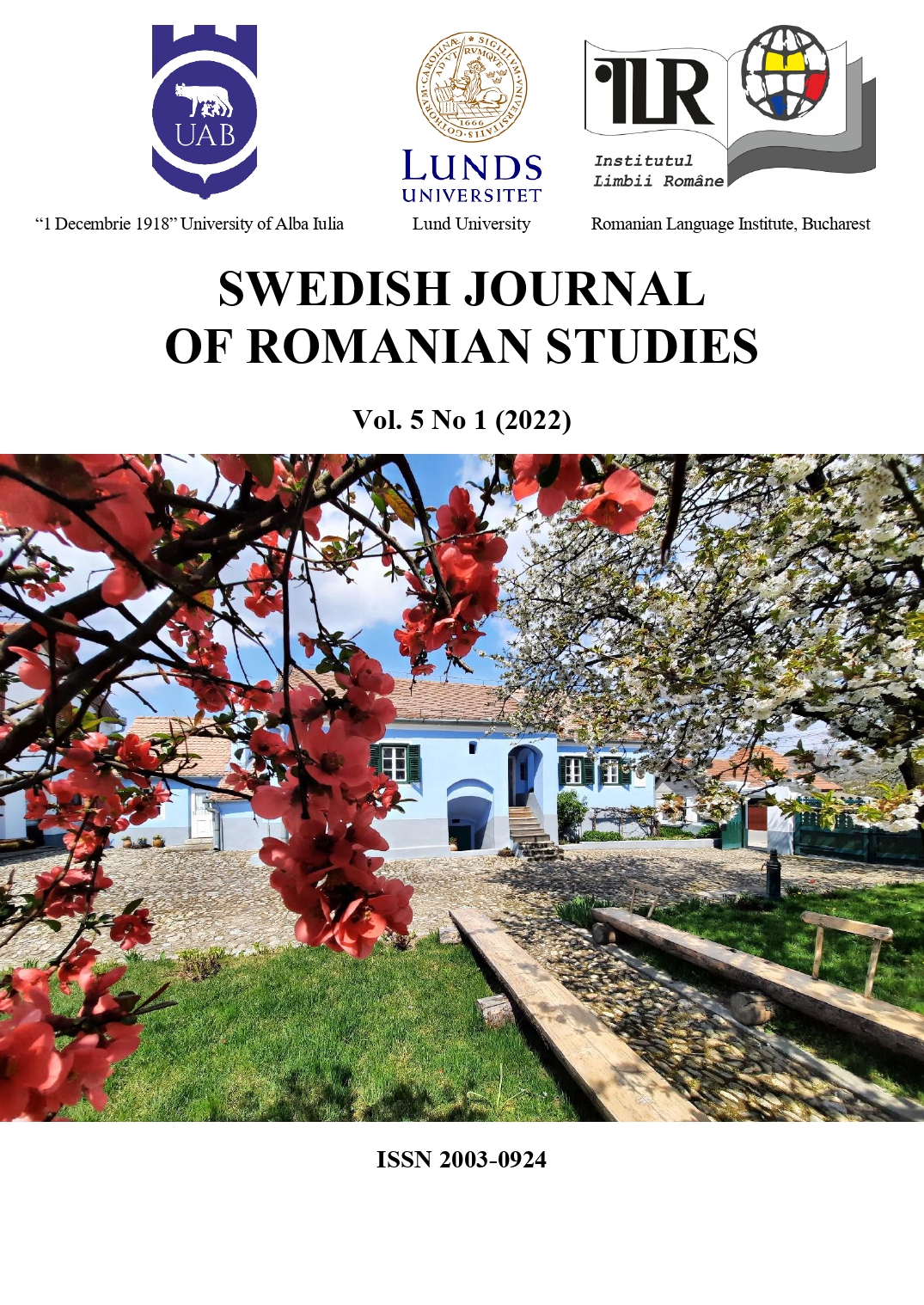Cartografierea ca enactivare. Poetica cognitivă și subgenurile narativului: repere teoretice
Cartography as enactivation. Cognitive poetics and narrative subgenres: theoretical landmarks
DOI:
https://doi.org/10.35824/sjrs.v5i1.23889Keywords:
cognitive poetics, cartography, enactivation, image schema, figure, scenario, (meta)mindAbstract
My study, though concise, problematizes the methodology and some of the conceptual vocabulary of cognitive poetics in relation to the narrative (sub)genre(s). This metatheoretical research attempts to reveal the specific algorithms and concepts of cognitive literary cartography, seen as an enactive process - the interpretation of narrative texts is defined as a dynamic interaction, a mutual transformation of both the `literary mind` and the text. In this respect, concepts such as `figure`, `image schemata`,`scenario` or`cognitive model` are relevant for the attempts to observe and explain the enactive (interpretative) approaches.
References
Adam, J.M. (2009). Textele: tipuri și prototipuri. Povestire, descriere, argumentație, explicație și dialog/ Texts: types and prototypes. Storytelling, description, argumentation, explanation and dialogue. Iasi: European Institute.
Bhatia, V. (2004). Worlds of Written Discourse A Genre-Based View. London/New York: Bloomsbury.
Brȏne, G., Vandaele, J. (eds.) (2009). Cognitive Poetics. Goals, Gains and Gaps. Berlin/New York: Mouton de Gruyter.
Bruner, J. (1986). Actual Minds, Possible Worlds. Cambridge: Harvard University Press.
Fauconnier, G., Turner, M. (2002). The Way We Think. Conceptual Blending and The Mind's Hidden Complexities. New York: Basic Books.
Gavins, J., Steen, G. (eds.) (2003). Cognitive Poetics in Practice. London/New York: Routledge. https://dl.acm.org/doi/pdf/10.1145/344599.344646
Hutchins, E. (1996). Cognition in the wild. Cambridge, MA: MIT Press.
Iser, W. (1993). The Fictive and the Imaginary, Charting Literary Anthropology. Baltimore: Johns Hopkins University Press.
Johnson, M. (1987). The Body in the Mind: The Bodily Basis of Meaning, Imagination and Reason, Chicago: University of Chicago Press.
Lakoff, G. (1987). Women, Fire and Dangerous Things: What Categories Reveal about the Mind. Chicago: University of Chicago Press.
Macé, M. (2004). Le genre littéraire/ The Literary Genre. Paris: Flammarion..
Mușat, C., Dobrescu, C. (ed.) (2020). Identificarea continuă: in honorem Mircea Martin/ The Identification Continues: in honorem Mircea Martin. București: Editura Muzeul Literaturii Române.
Pavel, T. (2008). Gândirea romanului/ The thinking of the novel. București: Humanitas.
Richardson, A., Spolsky, Ellen (eds.) (2004). The Work of Fiction: Cognition, Culture, and Complexity. Burlington, VT: Ashgate.
Ryan, M.-L. (1991). Possible Worlds, Artificial Intelligence, and Narrative Theory. Bloomington: Indiana University Press.
Schaeffer, J.M. (1989). Qu'est-ce qu'un genre littéraire ? Paris: Seuil./ What Is a Literary Genre? Paris: Seuil
De Spinuzzi, C., Zachry, M. (2000). Genre ecologies: An open-system approach to understanding and constructing documentation. Journal of Computer Documentation, 24(3). 169-181.
Stockwell, P. (2002). Cognitive Poetics: An Introduction. London and New York: Routledge.
Tsur, R. (2008). Toward a Theory of Cognitive Poetics. Brighton/Portland/Toronto: Sussex Academic Press.
Turner, M. (1996). The Literary Mind. New York: Oxford University Press.
Varela, F., Thompson, E., Rosch, E. (1991). The Embodied Mind. Cognitive Science and Human Experience. Cambridge: MIT Press.
Zunshine, L. (2006). Why We Read Fiction: Theory of Mind and the Novel. Columbus: Ohio State University Press.
Downloads
Published
How to Cite
Issue
Section
License
Copyright (c) 2022 Alina Buzatu

This work is licensed under a Creative Commons Attribution-NonCommercial 4.0 International License.
Authors who publish with this journal agree to the following terms:
a. Authors retain copyright and grant the journal right of first publication with the work simultaneously licensed under a Creative Commons Attribution-NonCommercial 4.0 International License that allows others to share the work with an acknowledgement of the work's authorship and initial publication in this journal.
b. Authors are able to enter into separate, additional contractual arrangements for the non-exclusive distribution of the journal's published version of the work (e.g., post it to an institutional repository or publish it in a book), with an acknowledgement of its initial publication in this journal.
c. Authors are permitted and encouraged to post their work online (e.g., in institutional repositories or on their website) prior to and during the submission process, as it can lead to productive exchanges, as well as earlier and greater citation of published work (See The Effect of Open Access).

